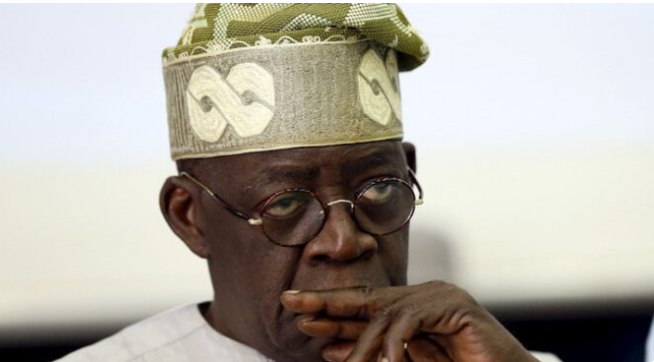Transparency International (TI), a global coalition against corruption, has ranked Nigeria as the 36th most corrupt country in the world.
The 2024 Corruption Perceptions Index (CPI) report was released on Tuesday by Transparency International through its Nigerian chapter, Civil Society Legislative Advocacy Centre (CISLAC).
Speaking during the public presentation of the 2024 CPI, CISLAC Executive Director, Comrade Auwal Musa Ibrahim Rafisanjani observed that the top 10 least corrupt nations were predominantly from European, with Denmark emerging as the least corrupt country in the world with 90 points, followed by Finland with 88 points and Singapore with 84 points.
While the report identified four positive trends and development, it however highlighted 10 major weaknesses ranging from judicial corruption, State capture and nepotism, Oil theft and subsidy fraud, Corruption in the power sector and public procurement, Tax evasion and selective tax waivers, lack of political integrity, Continuous corruption and wasteful expenditures in the security sector, Shrinking civic space and democratic decline, Opaqueness of public institutions and wasteful expenditures.
Nigeria shares the 36th position with Uganda, Mexico, Madagascar, Iraq and Cameroon, each scoring 26 points on the corruption index.
However, Cape Verde emerged as the least corrupt country in Africa, ranking 35th globally with 62 points.
At the other end of the spectrum, South Sudan, Somalia and Venezuela were named the most corrupt countries in the world for the year under review.

Further details on Nigeria’s 2024 CPI performance, showed that “Nigeria’s 2024 CPI score is 26 out of 100, a slight increase from 25 in 2023. Its global ranking improved from 145th to 140th out of 180 countries.
“While this indicates a marginal positive shift, it is far from the substantial progress needed to dismantle systemic corruption. Sub-Saharan Africa holds the lowest average score at 33 out of 100. Severe pressures- from climate to conflict- often hamper progress in this region. Nonetheless, there is hope, as several countries are showing the way forward with considerable improvements.
“While the index does not show specific incidences of corruption in the country, it indicates the perception of corruption in Nigeria. The index is impartial, objective, and globally acknowledged as the most widely used cross-country parameter for measuring corruption.
“In this year’s CPI release, it is important to highlight that this is not an assessment of Nigeria’s anti-corruption agencies which are making commendable efforts in the fight against corruption in Nigeria.”
Transparency International further clarified that: “the data used for the CPI is not collected by CISLAC/TI-Nigeria but by independent and reputable organizations with rigorous research methodologies. The CPI is highly consequential as governments, business entities, civil society organizations, and others direct their decisions based on this assessment.
“It is important to highlight that this is the first CPI under this administration thus, it will be used as a benchmark for subsequent years.”
Accordingly, CISLAC/TI-Nigeria has listed key areas to explain why Nigeria showed some improvement and areas where gaps persist.
The report identified four positive trends and development include: Increased Anti-Corruption Prosecutions: A growing number of high-profile cases are being investigated and some brought to court, signaling renewed commitment from law enforcement agencies despite the obstacles that they sometimes encounter. The ICPC and EFCC have made some efforts in recoveries, preventive and punitive measures as well as collaborations with other stakeholders.

“However, it is important to highlight that these agencies need to thoroughly investigate and prosecute high-profile individuals without political interference.”
The Organization also highlighted “Nigeria’s efforts to recover and repatriate assets are commendable. This includes the cooperation between Nigeria and France on the Abacha loot as well as the recent cooperation between the United States and the Nigerian government in the recovery and repatriation of the $52.88 million recovered from Nigeria’s former oil minister Diezani Alison-Madueke.
“Aside from this, there have also been domestic efforts to recover assets by the different government agencies. However, as will be seen in our recommendations below, there is a need for effective management of these recovered assets for the benefit of ordinary citizens.”
It further commended the Civil Society and Media Advocacy especially in the areas of Investigative journalism and civil society organizations like CISLAC have played a crucial role in exposing corruption and pressuring the government to act.
“The media, civil society, and citizens have become key pillars of Nigeria’s democracy. The trio through their complementary efforts have constantly put the Nigerian government on its toes, through the constant highlight of issues militating against the national interest of the country. CISLAC/TI-Nigeria recognizes this effort and we would like to encourage those from this concerned constituency to continue this approach.”
In the same vein, TI applauded “the adoption of e-governance solutions, including digital tax collection and procurement processes, has enhanced transparency and reduced opportunities for bribery.”
As encapsulated in the report, “Weakness 1: Judicial Corruption
A corrupt judiciary and compromised legislature undermine accountability and foster impunity. Conflicting judgments, jurisdictional overreach, and other misconduct erode public trust.
The Independent Corrupt Practices and other related offences Commission (ICPC) and the United Nations Office on Drugs and Crime (UNODC) have identified institutional weaknesses in Nigeria’s anti-corruption framework.
“In March 2024, UNODC quoted in its report that 20% of those who had contact with the Nigerian judiciary were confronted with a request for the payment of a bribe, the UNODC has stated that corruption is prevalent in the Nigerian Judiciary.
“The ICPC’s National Ethics and Integrity Compliance Scorecard highlights widespread non-compliance with anti-corruption policies across government institutions, while UNODC’s reports point to enforcement gaps, lack of transparency, and weak public accountability mechanisms.
“In the Civil Society Parallel Report on Nigeria’s implementation of Chapter 2 (Preventive Measures) and chapter 5 (Asset Recovery) of the United Nations Convention Against Corruption (UNCAC) published in January, it was highlighted that there are still significant gaps regarding Nigeria’s implementation of chapter 2 of the UNCAC, some of such areas include, code of conduct and asset declaration of public officials, access to information and civil society participation, judiciary and prosecution services.
“Regarding chapter 5, Nigeria was mostly commended on her asset recovery efforts, however, a lot more needs to be done with respect to the management of these recovered assets.
“Weakness 2: State Capture and Nepotism: Key government appointments are often driven by personal or ethnic affiliations rather than merit, exacerbating inefficiency and corruption. Individuals with corruption allegations are appointed into public offices, many citizens are reluctant to speak against government or its policies while others are afraid of reporting corruption for fear of retaliation. The absence of a Whistle Blower Protection Law has further exacerbated this.
“Weakness 3: Oil Theft and Subsidy Fraud: As Africa’s largest oil producer, Nigeria continues to lose billions in revenue to oil theft and subsidy fraud, with little accountability.
“Weakness 4: Corruption in the Power Sector and public procurement: Despite substantial investments, Nigeria’s national grid remains unstable due to corruption-driven inefficiencies in procurement and oversight. In the last year, Nigerians experienced frequent increase in electricity tariff despite majority unable to access up to 20 hours of electricity per day. Equally important is the wide corruption in the procurement system in Nigeria despite the public procurement law in place.
“Weakness 5: Tax Evasion and Selective Tax Waivers, Lack of Political Integrity: There is huge mismanagement of tax revenues, also, while small businesses and citizens bear a heavy tax burden due to multiple taxation, select corporations especially multi-laterals and elites receive questionable tax waivers, resulting in significant revenue losses.
“Weakness 6: Shrinking Civic Space and Democratic Decline: Government suppression of civic engagement continues to escalate, with increasing crackdowns on journalists, activists, and whistleblowers exposing corruption. Press freedom is under attack, and civil society organizations face state-sponsored intimidation, threatening democratic accountability. Incidents that come to mind include, the recent arrest detention and prosecution of some minors during the #endbadgovernance protests, amongst many other activists who have been arrested recently by state actors including killing of protesters.
“Weakness 7: Lack of Political Integrity: Lack of internal democracy and proper campaign finance within political parties breeds corruption and compromises elected officials. Allegations of corruption within INEC further undermine trust in the electoral process. This include allegations against some National Assembly members extortion and demand for bribes during their oversight functions and budget consideration.
“Weakness 8: Corruption In the Security Sector Continuous corruption and wasteful expenditures in the security sector are likely to determine the success or failure of the development objectives of the new administration. Furthermore, the trend of politicians and politically exposed persons using security agencies to pursue personal vendetta is very alarming, and wrong and should be discouraged.
“Weakness 9: Opaqueness of public institutions: Numerous public institutions in Nigeria are yet to fully comply with the Freedom of Information Act 2011, the Open Government Partnership and other international commitments Nigeria has signed onto. Information surrounding key contracts in the oil and gas sector, the infrastructure sector, and the social protection sector amongst others are not provided to the public.
“The anti-corruption agencies need to provide information and data on their arrests, investigations, and prosecutions as well as on the proceeds of crime they recover in line with the Proceeds of Crime (Recovery and Management) Act 2022.
“Weakness 10: Wasteful expenditures
The removal of subsidy on Premium Motor Spirit (PMS) popularly known as fuel, increase in taxes and tariffs that are not responsive to the plight of citizens without proper mitigation mechanisms to cushions the effect of the untold hardship is unfair. Despite this, public officeholders in Nigeria have failed to show empathy or concern for citizens’ plight rather, we have seen wasteful appropriation and approval of billions of Naira for luxury items.”
In its recommendations, CISLAC underscored the need to: “Ensure that agencies like EFCC, ICPC, and NFIU operate independently, free from political interference, and are adequately funded. Implement swift, fair trials for corruption cases and enact laws that enhance transparency and accountability.
“Establish an integrity monitoring mechanism within the judiciary, including whistleblowing channels, asset disclosure, and conflict of interest protocols. Impartial and unhindered investigation of security sector corruption must be prioritised to improve the deteriorating security across Nigeria. Security agencies or their operatives should not make themselves a tool in the hands of politically exposed person for personal vendettas.
“Effectively implement the Public Procurement Act 2007. Mandate full digitization and public access to government contracts, budgets, and procurement processes. Implement robust tracking systems for oil production and sales. Eliminate selective tax waivers.
“Agencies given the mandate to recover assets under the Proceeds of Crime (and Management) Act 2022 should ensure that they establish a database where information about assets in their custody is easily accessed by citizens in line with the Act and the proactive provisions of the Freedom of Information Act 2011.
“The relevant anti-corruption agencies should ensure that high-profile corruption cases are pursued to their logical conclusion for the benefit of Nigeria and its citizens. They should also explore international alternatives in transnational cases of grand corruption.
“Providing an enabling environment for promotion and protection of citizen’s human rights to protest and express their pleasure or displeasure in governance processes, this will further promote accountability in government.
“The National Assembly should ensure the passage into law of the Whistleblower Protection Bill which will safeguard the fundamental rights to freedom of expression and safeguard individuals exposing corruption.
Reform the electoral system to restore public trust.”



